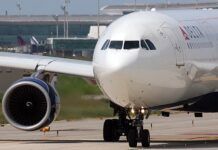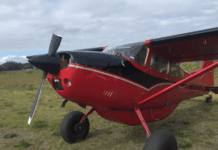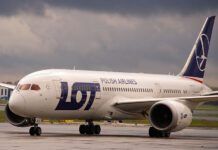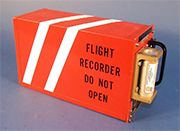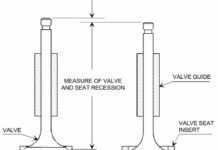
The atmosphere in the Pilot’s Lounge at the virtual airport has been decidedly unpleasant over the last several weeks. About half of the pilots here rely on telephone briefings with Flight Service to get their aviation weather information and file flight plans. As any pilot in the U.S. is now aware, the Lockheed-Martin takeover of the FSS system has been a disaster so far. It is so difficult and takes so long to get through to a briefer that there are rumors of a betting line in Las Vegas on how long it takes a pilot to reach a human or give up in the attempt. My personal record for tolerating frustration is at 40 minutes. In that call I never did get to speak to a human being, but Lockheed-Martin was ingenious enough to disconnect me three times while I was on “ignore.” (Some people call it “hold,” but I prefer not to use euphemisms.) I finally gave up. Here in the Lounge, if a pilot gets to speak to a briefer, etiquette decrees that — when finished — the pilot passes the phone to another pilot who is trying valiantly to reach a FSS.The comments regarding Lockheed-Martin that I have been getting from other pilots are uniformly not printable in a family publication. I’ve learned some interesting new profanity as a result. I would gladly give up the learning experience for the ability to get through to a briefer. However, I would prefer a briefer who speaks English. The angriest pilot I heard from called FSS from Palwaukee Airport, outside of Chicago, and managed to get a human, but the person simply could not speak or understand English well enough to conduct a weather briefing. The pilot, Bud Post, gave up on the briefing and tried to file an IFR flight plan with the FSS briefer. Bud went through the sequence extremely slowly, spelling most of the information, and was told by the briefer that the flight plan was on file. In fact, Bud asked him three separate times (because of the language problem) and was assured it was on file. Of course, when Bud went to pick up his clearance, there was no record of any flight plan.Yes, I know that if I use a computerized briefing I will avoid this problem. However, I prefer to discuss the weather with the briefer, as the quality of my understanding goes up compared to reading the bare numbers on the computer. This is especially true when I get a briefer who knows and is interested in weather. The more significant problem is that, when the weather is low here at the virtual airport as well as at a number of airports I frequent, the only way to pick up my instrument clearance is via telephone. For many years, once I had a cell phone, it was a piece of cake: I’d fire up the engine, taxi out to the runup area, do my pre-takeoff checks and then call Flight Service. I’d get a briefer within seconds, the briefer could call up my clearance, and I’d be on my way quickly and efficiently.Now, I preflight the airplane and debate whether to have my passengers even get in. The problem is that I know it is going to be a long time between when I place the call and when I reach a briefer. Plus, for some reason, the briefer always has a heck of a time getting my clearance (if it hasn’t been lost because of some screw-up). So it will usually take the briefer several minutes of hunting; however, once the clearance does come, I get a void time that is only about seven minutes away; far shorter than I’ve gotten in the past. Then I’ve got to shoehorn everyone into the airplane, start up, taxi out, do the pre-takeoff checks and get into the air within seven minutes. If the wind is out of the north, it’s not physically possible unless I take off downwind, because it’s too far to taxi to the other end.
Worst-Case Scenario

The problems are obvious. What is nagging at the back of my mind is the question of whether anyone has, or is going to, die because of this situation. How many pilots have given up and launched without a full weather briefing? Will there be any deaths attributable to flying into forecast weather that they didn’t get because of the system collapse? How many pilots have given up trying to get their IFR clearance by telephone and launched, intending to scud run while they pick up their instrument clearance from ATC in the air? Will there be any that hit something because they couldn’t get high enough to reach ATC? Or, if they do reach ATC, will they run into trouble when they’re delayed because their instrument flight plan vanished into computer limbo?Yes, I know it is the pilot’s responsibility to get a full weather briefing and to assure terrain clearance when taking off to pick up a clearance airborne. However, I also know human nature, and I know that one of the factors that causes a pilot to make an unsafe decision may be the impossibility of reaching the very people the FAA has tasked to provide life-saving information. I can’t help but wonder if the FSS mess will cost lives.That Lockheed-Martin is going to remain comfortably profitable through all of this troubles me. That no one at the FAA will get fired because they negotiated a screwy contract that they knew might put general aviation users at risk tends to add to my native cynicism. Once upon a time I read the Federal Aviation Act, the law that created the FAA. It said that the sole purpose of the FAA’s existence was to enhance air safety. That’s it: The FAA is supposed to be a safety agency, pure and simple. (It no longer exists to encourage aviation; that role was taken away by Congress some years ago.)
Safety First?

Somewhere, somehow, Marion Blakey and her Administration seem to have lost sight of their mandate to provide for the safety of American citizens who travel by air. Perhaps it was when she made the decision to get rid of those pesky general aviation aircraft by starting the user-fee juggernaut. Perhaps it was earlier, when someone saw that one of the portions of the FAA, the Flight Service Station system, was carrying out its designated function rapidly, accurately, safely, and generally working in a nearly flawless manner. Naturally the reaction was that such a situation was intolerable. Because ongoing competence in the field of safe aviation could not be allowed to continue, the FAA went through a grueling and expensive process to fix it. In October of 2005, ostensibly to save the taxpayers money, it entered into a $1.7 billion contract to “privatize” (is that really a verb?) a portion of the FAA that worked well. I know, children … one would think that if private industry could do a government function better than the government, then the FAA would have privatized one of the parts of the FAA that doesn’t work. Children, such a thought would require us to apply that evil concept, logic, to the operation of political machinery. Children, you know very well that logic should never be used when traveling through the looking glass into privatization land.The $1.7 billion contract with Lockheed-Martin was to save 20% off the cost of having the work done by FAA personnel, who apparently were evil, money-grubbing government employees who had committed the mortal sin of competence. Of course, there were those sticks-in-the-mud who felt that the numbers didn’t add up. After all, you have to pay enough to hire the kind of talent needed to staff the Flight Service Stations, located where the briefers could have detailed local knowledge of the prevailing weather patterns, and equip them with the latest computers, and finally allow for the kind of profit that shareholders will demand (on the order of 8-15%). How can Lockheed-Martin do this for less than the folks who have been doing it so very well for so many years without the cost of a return to the stockholding mutual funds?Well, those who were skeptical were told to close their eyes, click their heels together and get with the program. Even when the FAA’s own internal investigative folks looked at the contract and pronounced that there were grave doubts as to whether Lockheed-Martin could pull it off, Marion Blakey and her friends decided that such talk was defeatist and shouldn’t be considered. Besides, Lockheed-Martin contributed nicely to the appropriate politicians, so a politically appointed sort doesn’t want to make waves, even if she is in a job involving air safety. Nevertheless, for people whose sole purpose in employment is air safety, to shrug off an objective report by one’s own agency that indicates that a critical safety function is imperiled is, at least in my opinion, reckless and irresponsible in handling our money. If someone dies as a result, it may become criminal.As we know, the result has been a system that just isn’t working. When we get through to a briefer, they are usually very friendly folks who are trying to do their best, but they generally have no idea about the local areas where we are flying. They often complain that the computer system isn’t working and (through no fault of their own) they lack the essential feel for weather patterns and behavior in specific areas of the country, such as the lee side of the Great Lakes, the ice machine of the Pacific Northwest, tornado alley through the Heartland and others, because they were tasked to cover too much of the country.
Costly Slowdowns

The day I gave up after my 40-minute-with-three-disconnects-call series I could not help but think that I’d seen this all before. It had all the earmarks of a classic slowdown in an attempt by an organization to get more money. For some years I lived in Chicago, probably the most brazenly corrupt city in the country. When the “L” trains started running way late and irregularly, everyone knew that in about a week the CTA (Chicago Transit Authority) would announce the need for a rate hike. More money would be applied and the trains would resume scheduled operation. I was at Oshkosh and attempted to depart IFR two days before the controllers’ strike occurred in 1981. Strangely enough, ATC suddenly couldn’t seem to arrange more than a few IFR departures per hour, a tiny fraction of what it had been doing over the previous week. I got in line and pulled my airplane along by hand for four hours before being able to depart.I’ve seen slowdowns.So it wasn’t a bit surprising when, two days later, AVweb reported that Lockheed-Martin was having trouble implementing the FSS contract and wanted 10% more money. It’s the standard major-defense-contractor shuffle that President Eisenhower so eloquently described in his “military industrial complex” speech in the 1950s. Nothing has changed. Lockheed-Martin got the contract with a low bid and is already starting the time-honored procedure of running up the price.Let’s see, 10% of $1.7 billion is what, class? Yes, $170 million. Very good, class.Oh, yeah, the contract was to save us, the taxpayers, 20% over the cost of keeping the FSS system where it was. And the first overrun claim is for half of that. We’re doing well, eh?Oh, and Lockheed-Martin magnanimously admitted it had experienced “intermittent service issues.” Much as rival Chicago gangs experienced “intermittent service issues” after Al Capone’s folks visited them. Don’t you just love understatement? So very British.
Charging More for Doing Less

But wait. During the week of June 4, 2007, our ever-vigilant FAA announced Lockheed-Martin was not doing its job well and the FAA was going to withhold $3 million, pursuant to penalty clauses in the contract. Hmmm … $170 million on the first overrun claim, minus $3 million. Those Lockheed-Martin executives must have some very sore wrists from the slapping they got at the hands of the FAA.Lockheed-Martin has been around the block enough times to know how to play the political contractor game well. I suspect it will make sure it doesn’t lose a cent on this contract. A number of Lockheed-Martin executives will probably sweat things for a few months, but as the overrun payments kick in, I won’t be the least bit surprised when they get nice promotions and six-figure bonuses. No one at the FAA will be fired or demoted for stupidity or aggravated stupidity. And pilots and passengers are put at risk because the people responsible put political expediency before air safety. Makes a person feel all warm and fuzzy inside.What struck me as I researched this column was that other countries are harder on their bureaucrats and corporate executives whose actions are irresponsible and put people at risk. In the midst of the FSS mess, on May 29, 2007, the head of China’s version of the Food and Drug Administration finished up his criminal trial for allowing tainted food out of the country (which killed a number of American citizens) and accepting bribes. He was convicted and sentenced to death.After a couple of crashes of the first series of Airbus airliners, involving a number of deaths, some of whom were Americans, French courts sentenced some Airbus executives to jail for their negligence in failing to appropriately oversee the design process of the aircraft.If there were an effective legal system in the U.S., our own Department of Justice would right now be conducting an investigation into the Lockheed-Martin FSS contract. We might even learn the identities of the now faceless Lockheed-Martin executives and FAA bureaucrats who put together the FSS deal and who diminished the level of air safety.I won’t hold my breath. Lockheed-Martin is too politically connected. The FAA bureaucrats knew enough to get plenty of fingerprints and signatures on each and every decision that was made along the way so it will prove impossible to determine who the true half-wits were.At the very least, we could ask that FAA Administrator Marion Blakey and Robert J. Stevens, the Chairman, President and Chief Executive Officer of Lockheed-Martin, publish their home phone numbers. We pilots would like to personally compliment them on the FSS contract.Our president has said that our government must be responsible to its citizens. If someone comes up with those phone numbers, I’ll put them in this column.See you next month.
Want to read more from Rick Durden? Check out the rest of his columns.


















